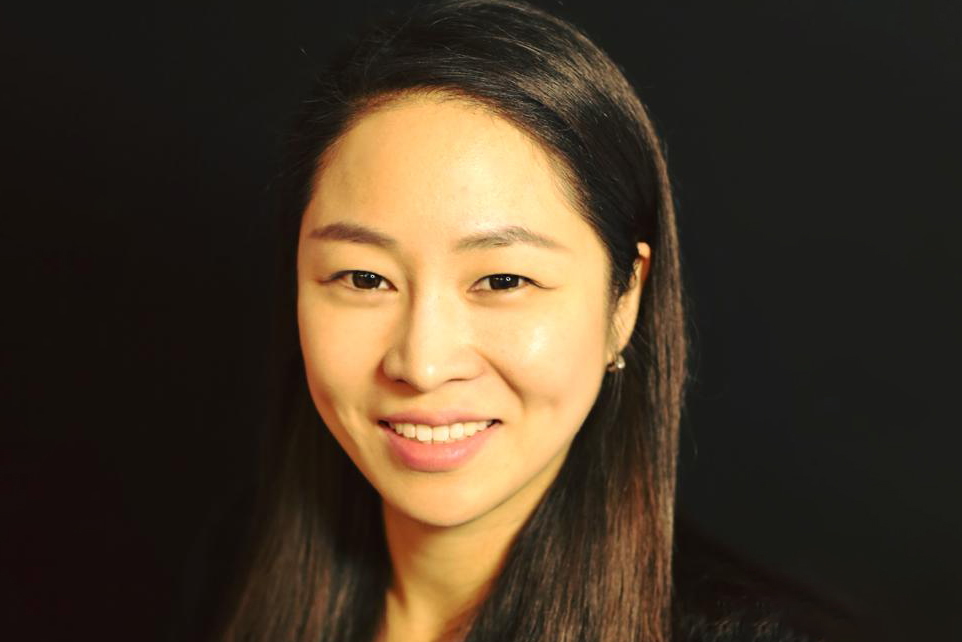
Assistant Professor Jin Kyeong Jung received a national award for research in language, diversity and literacy studies.
Growing up in South Korea, Jin Kyeong Jung enjoyed watching American TV shows and movies and singing along to the R&B group Boyz II Men.
She was passionate about learning English and took every chance she got to practice and immerse herself in the language. "English in South Korea – it has a lot of power," Jung said. "Learning English kind of opened up opportunities for me."
Jung's love of language learning led her to become an English instructor at a community college. But for many of her students, English was a barrier to success. Oftentimes they came from low-income families and did not have many opportunities to practice English. Rote memorization and textbook-based learning left them disengaged and demotivated. By the time they arrived in Jung's classroom, they had all but given up on education, she said. Jung felt powerless to help.
Now an assistant professor in Language, Diversity and Literacy Studies at Texas Tech, Jung has devoted her career to finding ways to improve educational systems and practices so that English language learners can thrive – and, ultimately, participate as global leaders.
"If I become an influencer, like a big scholar, I could actually impact the academia and change the educational system and teaching materials and pedagogies and do something for the young generation," she said. "That is my motivation."
Now in America, her work has sort of flipped. Instead of Koreans who are struggling to learn a foreign language, she works with students in America who might struggle to fit into English classrooms.
Her goals include creating opportunities and spaces where these students can use their languages and backgrounds to find success.
Multilingual students bring unique perspectives and cultural experiences to the classroom that can enrich the educational experience for everyone, Jung said. However, when they are not given opportunities to express themselves in their native language or to learn in ways that are culturally relevant to them, this knowledge can be lost. They may become demotivated in their efforts to learn about their heritage and to utilize the many valuable resources available to them.
“It is similar to an on and off switch,” Jung said. “So, at school, English mode. Ok, at home, Korean mode. But how can you connect them? Then you can use all your resources for academic success or becoming a global citizen."
Novel Approaches
Jung's research has gone outside of school classrooms to include informal contexts and novel ways of thinking about language and literacy.
One ethnographic case study brought her to a dry-cleaning store in Philadelphia.
The study, Jung said, was inspired by conversations she had with Korean youth while completing her doctorate in Philadelphia. They wondered why there were so many Korean Americans working at dry cleaners and why there was a lack of good Korean American role models.
Through her research, Jung re-imagined the dry-cleaning business as a site of language and literacy practices.
She found that despite possessing limited education and English skills, the Korean dry cleaners could adeptly interact with English-speaking customers. They learned how to use body language and a good sense of humor. "They build up their communicative repertoires," Jung said.
Importantly, Jung said, the study helped dispel stereotypes and proved that the hardworking and always-upbeat dry cleaners were, in fact, role models.
The study earned Jung the J. Michael Parker Award from the Literacy Research Association (LRA). She said the award brought her to tears.
"It was a big achievement for me as a researcher, but what impressed me most was the association recognizing the immigrant lived experience in the workplace," Jung said. "They are valuing and respecting immigrants. That's how I interpreted the award."
The Importance of Mentorship
Last year, Jung was awarded an LRA STAR Fellowship for 2022-24. The selective mentoring program is for scholars of color who are beginning their careers as literacy researchers, and it was a dream of Jung's since her doctoral studies. Through the program, Jung collaborates with a mentor, Vaughn W. M. Watson, an associate professor at Michigan State University, on research related to immigrant youth civic engagement.
"I am grateful for the opportunity, as a junior scholar, to work with and collaborate with a senior scholar who I have long admired for his important work," Jung said.
Jung is also participating in the inaugural Korean American Educational Research Association (KAERA) Early Scholar Program. The two-year program provides mentorship and resources to early-career Korean American scholars in education research.
Jung emphasized the importance of building solidarity among Asian scholars and utilizing identity-based mentoring and community spaces. Harmful stereotypes often hold Asian scholars back and make it seem like they don't need support, she said.
"Asians in the U.S. are perceived as perpetual foreigners," Jung said. "Many people think, 'Oh, this Asian person will just stay here temporarily, so they are not part of our community.'"
Jung's work is also important "at a time when Asian hate crime is soaring," said Jeong-Hee Kim, professor and chair of Curriculum and Instruction in the College of Education.
"We can create a more welcoming and supportive environment for all individuals, regardless of their background or identity," Kim said. "In this way, Jin's work is not only important for Korean scholars but for all those who seek to create a more just society."
For Jung – who still loves Boyz II Men and was excited that they visited Lubbock last year – everything links back to overcoming stereotypes and creating more engaging educational spaces. She hopes that more teachers, educators and researchers and practitioners will follow suit.
"It takes a lot of time sometimes," Jung said, "but I think it's really worth trying."
